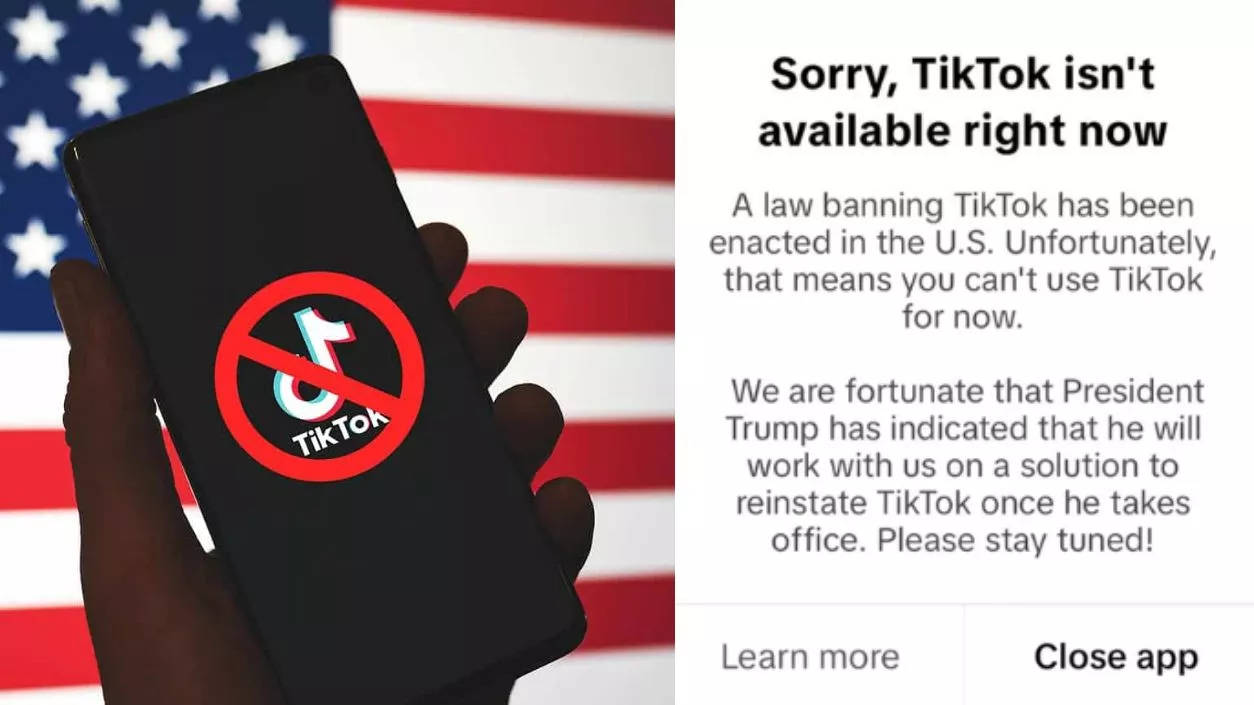Protests erupt outside Kasba Police station as 3 arrested in alleged Kolkata college gang rape
.gif)
.gif)

TikTok has officially ceased operations in the United States as the Supreme Court upheld a law banning the app, effective January 19. The law, passed by the US Congress and signed by President Joe Biden in April 2024, required ByteDance, TikTok’s Chinese parent company, to divest its US operations within nine months. The deadline passed without a sale, triggering the app's removal from the market in the US. As of now, users in the US can no longer access TikTok, and the app has been removed from both the Google Play Store and Apple’s App Store.
The decision to ban TikTok is based on concerns that the app may pose a national security threat. US officials raised alarms over TikTok’s data practices, suggesting that user data could be accessed by the Chinese government due to China’s strict national security laws. These laws could compel Chinese companies like ByteDance to assist with intelligence gathering, including sharing information about US citizens using TikTok. US intelligence agencies, including the FBI, have warned that TikTok's data collection methods and content recommendation algorithm could be used to influence American users, sway public opinion, and conduct surveillance.
TikTok had challenged the law in court, arguing that it infringed upon free speech rights protected by the First Amendment. However, the Supreme Court ruled unanimously on December 6, rejecting the company’s appeal and upholding the law. This decision effectively blocked TikTok’s operations in the United States, making it the first time a US-based app of such scale has been banned due to national security concerns. TikTok had previously attempted to reach a deal with a US-based buyer, but no agreement was finalized by the divestiture deadline.
As a result of the ban, TikTok users in the US are greeted with a notification when attempting to access the app, informing them that the platform is no longer available. Users who previously installed the app are unable to access or upload any content, while the platform has been removed from both major app stores. The app’s previously offered option to download user data is now unavailable. The company has not provided a timeline for restoring its services in the US, but has stated that the cessation is a result of the enforced law.
The impact of the ban is significant, particularly for the over 170 million US-based TikTok users, including many businesses and influencers who relied on the platform for content creation, marketing, and engagement. TikTok had become a major tool for online marketing, brand promotion, and even political campaigns, with millions of small businesses using the app for customer outreach. The loss of TikTok has disrupted many digital marketing strategies across industries, particularly for smaller businesses that heavily depended on the platform’s algorithm to target specific user demographics.
The law that resulted in TikTok's ban allows the sitting US president to grant an extension to ByteDance if a sale agreement is in progress. President-elect Donald Trump, who is set to take office on January 20, 2025, has indicated that he may consider granting a 90-day extension to allow more time for a resolution. However, there has been no indication that the ban will be lifted or reversed. The potential for TikTok to resume operations will depend on ongoing discussions between ByteDance and potential buyers, as well as decisions made by the new administration regarding the app’s future in the US.
The future of TikTok in the US remains uncertain, with the app’s ban now in effect and no clear path forward. It is expected that the app will eventually become completely unavailable in the country as updates and support are blocked. Both TikTok users and businesses reliant on the platform are now facing a period of uncertainty as the app is effectively "offline" until further action is taken.